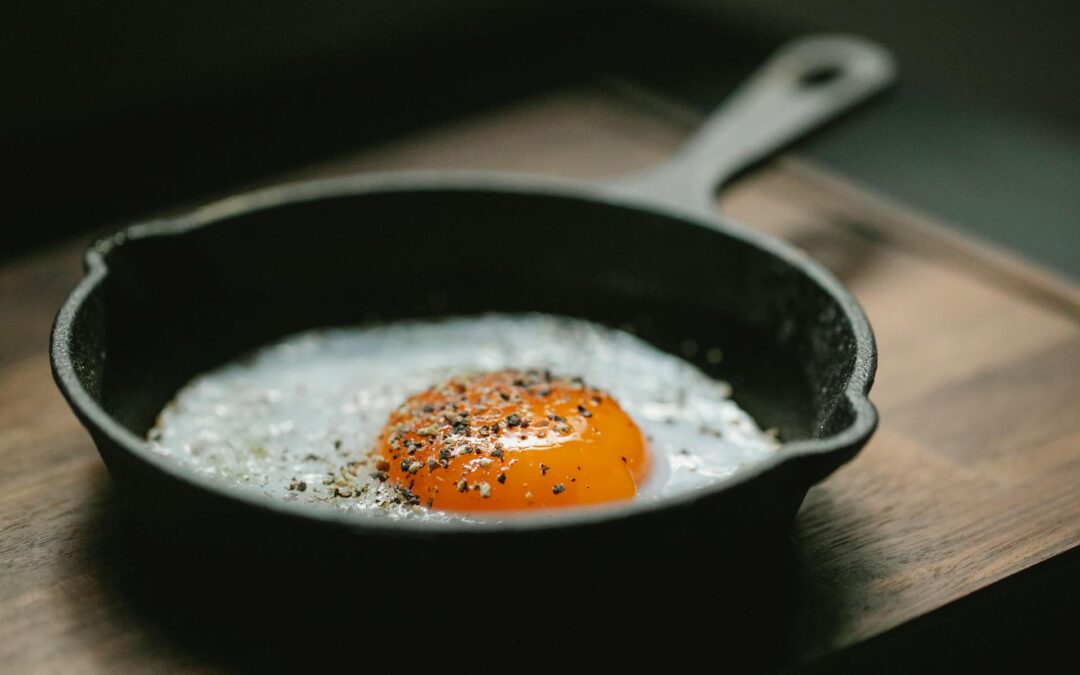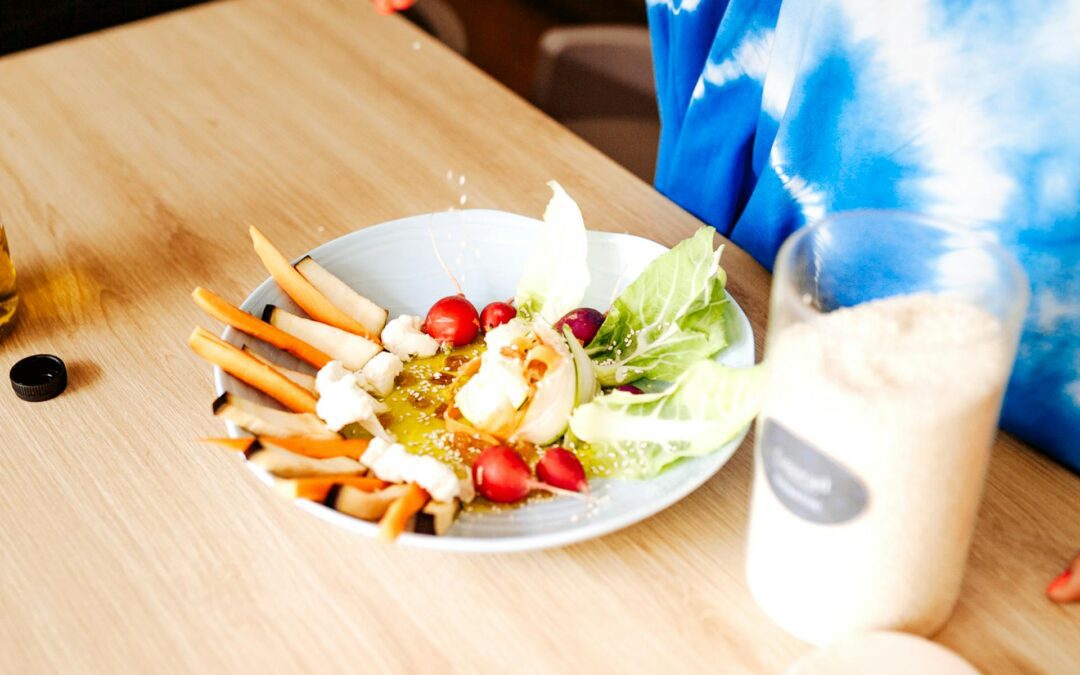The growing popularity of alternative vegetarian proteins shows no signs of abating.
Plant-based chicken tenders, sausage patties, and even beef jerky rapidly appear on grocery store shelves.
What’s the most recent plant-based food? Eggs.
When I initially received an invitation to test plant-based eggs, I declined. I was unconvinced, like many non-vegans, that artificial eggs could have the same fluffy, chewy texture as the real thing.
In addition, eggs are relatively healthy. As a dietitian, I am fully aware of their numerous nutritional advantages.
Did I need to replace them with a mung bean, soy, and another ingredient mashup?
Despite my qualms, the more I heard from other foodies about how much they enjoyed their animal-free omelets and scrambles, the more intrigued I grew.
Soon after, a package of plant-based eggs arrived at my door, and I started experimenting.
Here’s what I discovered about how eggless eggs compare to their traditional counterparts in cooking and baking, as well as a look at their health benefits and drawbacks.
What’s in plant-based eggs?
Though they may appear to be a recent creation, egg-free eggs have been around for quite some time. There are several variants, each with its component list.
Many previous versions of imitation eggs were designed to be used as a binder in baking rather than as a standalone meal. These frequently start with a flax or chia seed basis.
You may even design your own:
- Combine 1 tbsp. Flaxseed meal with 2 1/2 tbsp. Water.
- Let rest for 5 minutes.
- Add to your recipe.
A new harvest of synthetic eggs has recently entered the market for eating on their own, with additional possibilities coming in 2021.
Follow Your Heart’s VeganEgg, for example, has a soy milk powder base that must be reconstituted with liquid before use.
Volumizing and emulsifying chemicals such as cellulose and carrageenan are added to the mix to generate a fluffy egg-like texture, while nutritional yeast, salt, and herbs assist imitate the savory flavor of eggs.
I tested JustEgg, a standalone product designed for eggy eating, for my own DIY test kitchen experiment with imitation eggs (not just baking).
JustEgg is available in both pourable and precooked forms. To give it its trademark eggy flavor, it’s prepared using a combination of mung bean protein and canola oil, as well as spices and other flavoring ingredients.
Nutritional (and ethical) benefits of faux eggs
If you’re thinking about trying egg-less eggs, you’re undoubtedly concerned about nutrition and ethics. These items stand out for a variety of nutritional and environmental benefits.
Vegan eggs contain no cholesterol since they are free of animal products. This might be beneficial for heart health, as the Dietary Guidelines for Americans advocate ingesting as little dietary cholesterol as possible.
However, cholesterol in eggs is not the dietary devil it was previously assumed to be.
“Recent study indicates that you no longer need to limit dietary cholesterol from eggs since there was no substantial link found between dietary cholesterol and blood cholesterol levels.” According to Bonnie Taub-Dix, RDN, “one egg a day is not related with heart disease in healthy persons.”
Taub-Dix is the author of “Read It Before You Eat It: From Label to Table.“
“This relaxation of constraints does not imply that we should be eating four-egg omelets every day.” “We still sing the same tune when it comes to most dishes,” she explains.
The environmental benefits of plant-based eggs are another vital selling factor for many individuals.
Egg-laying chickens, even free-range ones, emit greenhouse emissions that contribute to climate change. Choosing plant proteins over animal proteins decreases this impact.
Meanwhile, because no animals are involved, animal cruelty is not concerned with vegetarian eggs.
Drawbacks of faux eggs
Just because fake eggs are created from plants doesn’t imply they’re a better nutritional choice than chicken eggs.
For starters, synthetic eggs have less protein.
Compared to the approximately six grams in a giant egg, one serving of JustEgg’s liquid product comprises 5 grams, whereas VeganEgg contains just 3 grams.
Then there’s the sodium issue.
A single serving of JustEgg has 170 mg of salt, whereas a serving of VeganEgg contains 150 mg. What is the salt content of a giant chicken egg? Only 65 mg.
Faux eggs are also far more processed than chicken eggs.
A high-processed-food diet has been linked to an increased risk of obesity and cancer. Not surprisingly, the amount of processing required to produce synthetic eggs is reflected in their ingredient lists. This can be off-putting when compared to the one-word ingredient label on chicken eggs.
On the other hand, even unpronounceable substances aren’t necessarily a reason for concern.
“Some individuals may be put off by unusual substances on the ingredient list, such as transglutaminase.” “The FDA (Food and Drug Administration) considers transglutaminase to be GRAS (generally recognized as safe), and the USDA considers the component safe for use in meat and poultry products,” Taub-Dix explains.
Chicken egg vs. plant-based egg nutrition
| Chicken eggs | 1 serving JustEgg | 1 serving VeganEgg | |
| Calories | 74 | 70 | 35 |
| Total fat | 4 g | 5 g | 1 g |
| Saturated fat | 1.5 g | 0 g | 0 g |
| Cholesterol | 207 mg | 0 mg | 0 mg |
| Sodium | 65 mg | 170 mg | 150 mg |
| Carbohydrates | 0 g | 1g | 5 g |
| Fiber | 0 g | 0 g | 1 g |
| Sugars | 0 g | 0 g | 1 g |
| Protein | 6 g | 5 g | 3 g |
How they perform (and taste) in cooking and baking
Aside from nutrition facts, the issue on everyone’s attention when it comes to fake eggs is: how do they taste?
I put them to the test in my kitchen with three of my favorite recipes for quiche, muffins, and scrambled eggs.
Quiche
Quiche, a simple breakfast, lunch, or dinner, was first on the list at my culinary laboratory.
I made my first vegan quiche with JustEggs’ liquid combination, a sprinkling of cheese, and a coating of salt and pepper.
After 20 minutes in the oven, my product looked — I kid you not — just like conventional baked eggs. Food science is a magical science.
I probed it with a fork to see how it felt. Indeed, it was nearly identical to my typical quiche, right down to the top layer of crispy eggy crust.
The JustEgg combination looked to stay together better than regular eggs, with a thicker, less goopy texture.
Now comes the big question: how did it taste?
The flavor of the eggless quiche was undoubtedly similar to actual eggs, but not quite there, with a touch too savory. Even so, I’d never guess what I was eating was composed of beans.
Scrambled eggs
It was then time to test synthetic eggs in their most basic form: scrambled.
When it went into the pan, the bean-based liquid appeared identical to beaten eggs. The concoction even clumped together like genuine eggs when it cooked.
However, the texture of the mixture appeared to be a little stickier. Like actual scrambled eggs, they adhered to the pan. Furthermore, because the fake eggs did not brown, it was difficult to tell when they were done.
The flavor didn’t convince me of my scramble. The vegan eggs didn’t require salt because of the seasoning, but they left an unpleasant aftertaste.
Muffins
I always make muffins for breakfast, so a taste test with these baked goodies was a near-certainty for me.
Instead of breaking an egg into my favorite banana muffin recipe, I used JustEgg. To my amazement, there was no discernible change in flavor or texture in the completed product.
Baking is the most excellent way to use vegan eggs, in my opinion.
The bottom line
Both natural and fake eggs have health and nutritional benefits.
As a non-vegan, I’m not ready to “fly the coop” by replacing chicken eggs with synthetic eggs.
Plant-based eggs can be an excellent alternative for lowering cholesterol, cutting back on animal protein, or decreasing your carbon impact.







0 Comments